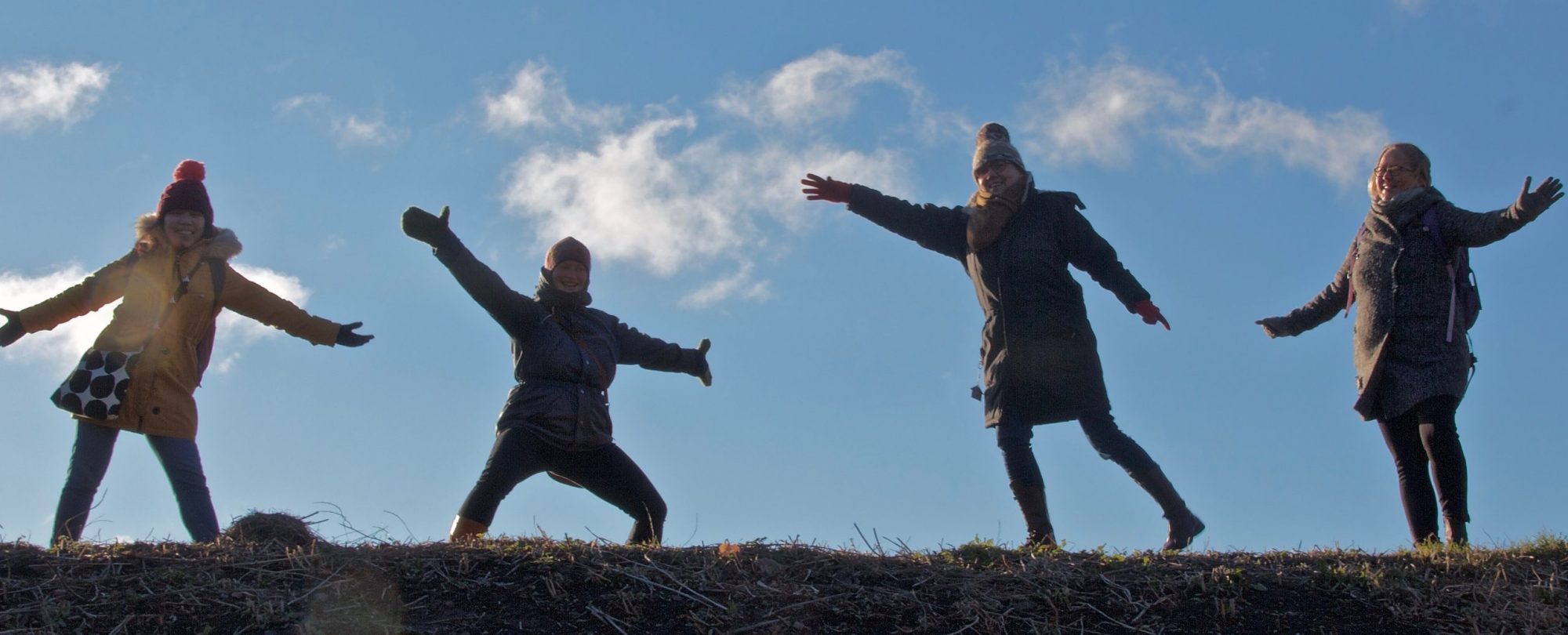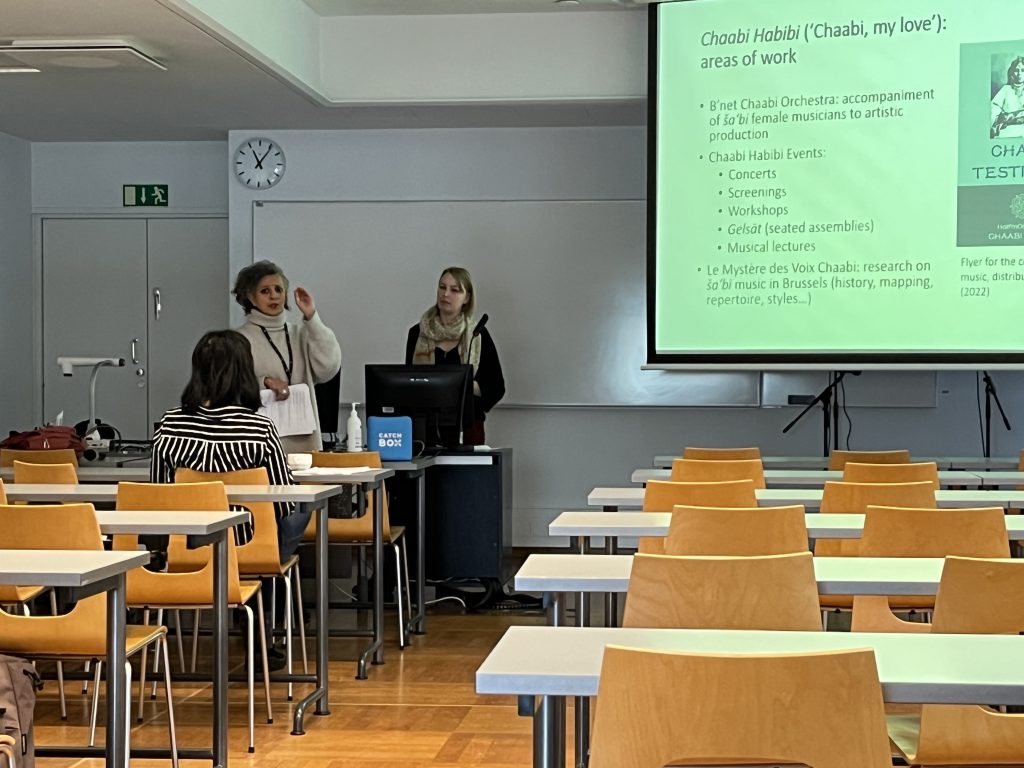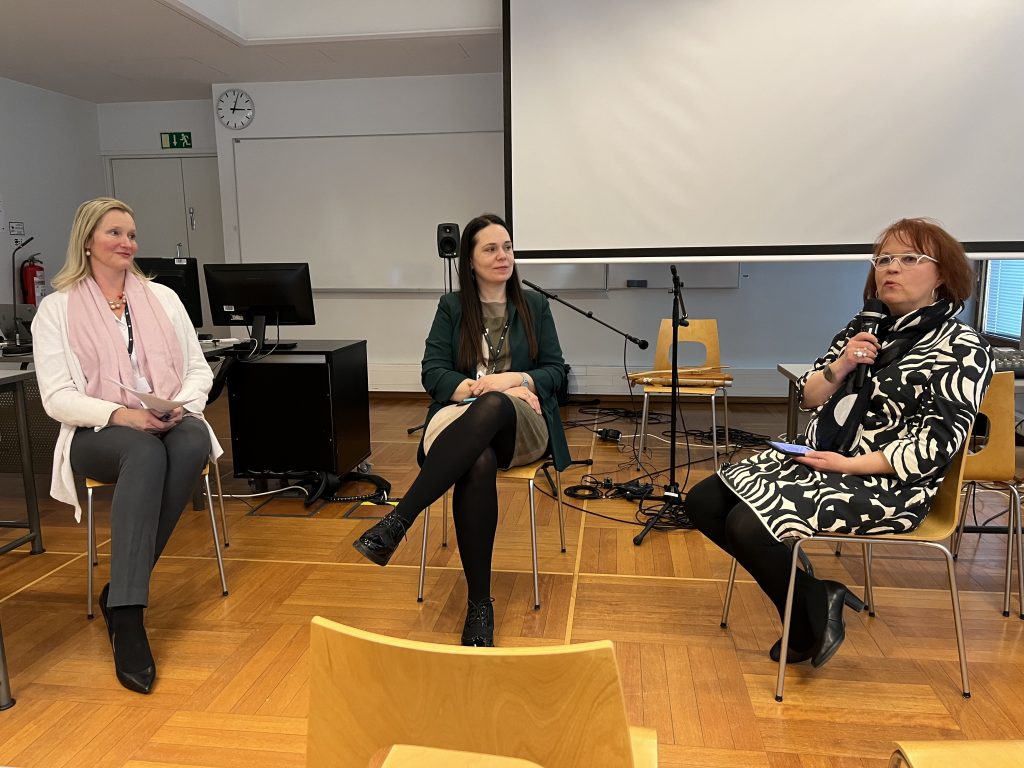The Women–Music–Futures symposium brought together a wide range of presentations based on both artistic and research projects. While the presented projects offered varied insights on women’s musical activities around the world, several common themes emerged. For example, a number of projects emphasized music as a space of comfort, respite, and pleasure for women musicians and their audiences. At the same time music making can provide a sphere where women can build solidarity and networks of mutual support. Sometimes music provides a medium for voicing one’s opinion to the outside world.
– Nina Öhman
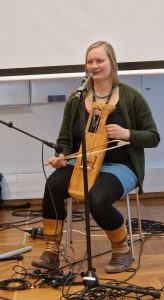 It was liberating and empowering to see same issues relating to women musicians repeat in different contexts around the world, and to see that I am not to only one who has paid attention to the minority position of women musicians and wants to change things! Women face similar challenges, although the circumstances may be very different, and it was great to see all the different ways in which people are addressing these issues.
It was liberating and empowering to see same issues relating to women musicians repeat in different contexts around the world, and to see that I am not to only one who has paid attention to the minority position of women musicians and wants to change things! Women face similar challenges, although the circumstances may be very different, and it was great to see all the different ways in which people are addressing these issues.
– Jenni Hanikka
It was lovely to host a relatively small but very diverse group of symposium participants in Helsinki and hear about their recent and ongoing projects during the two days of the event. I especially enjoyed the warm and encouraging atmosphere and the inspiring conversations with colleagues from all over the world.
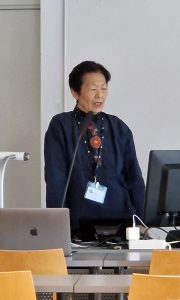 The keynote by Tan Sooi Beng, Professor of Ethnomusicology at the Universiti Sains Malaysia, Penang, wonderfully demonstrated the key roles that women have played in various local music practices in Malesia, as elsewhere in the world, despite the dominant attitudes of a patriarchal society. Malesian women’s musical activities have also not been limited to the local and the traditional even in the past but they have been equally active in the construction of various transcultural and cosmopolitan styles.
The keynote by Tan Sooi Beng, Professor of Ethnomusicology at the Universiti Sains Malaysia, Penang, wonderfully demonstrated the key roles that women have played in various local music practices in Malesia, as elsewhere in the world, despite the dominant attitudes of a patriarchal society. Malesian women’s musical activities have also not been limited to the local and the traditional even in the past but they have been equally active in the construction of various transcultural and cosmopolitan styles.
– Elina Seye
Although there were a few last-minute cancellations and changes, the symposium went very well. With a relatively small size, everyone was nicely connected during coffee breaks, lunches, and after the symposium and had good conversations with one another. The keynote was inspiring, and there was an emotional moment when the researcher and artist shared their collaboration on empowering Moroccan women in Belgium with music. The symposium created an intimate, friendly, and encouraging atmosphere that took attendees from different cultures and countries on a journey consistent with the values of the World Wide Women project.
– Ying-Hsien Chen
I was especially impressed by the ways in which artistic work and research has been combined in different ways in various projects. For example, in the Kyynelkanavat project (focusing on laments in contemporary Finland) three artist-researcher pairs approach the Karelian tradition of lamenting from different viewpoints.
– Marjo Smolander
It is always gratifying to learn about women who make music in different parts of the world. The experience is especially delightful in a small-scale symposium such as this, where it is easy to talk about each other’s work also in informal gatherings. I find it rewarding to be able to make comparisons between a colleague’s and my own work. It seems that in many parts of the world, women are making music as a way to mobilize their strength in order to transform their realities either economically, therapeutically, or otherwise.
– Siboné Oroza
The symposium concluded with a keynote panel titled “Gender issues in music – challenges, opportunities, and futures”. The panelists included Iva Nenić, ethnomusicologist and cultural theorist at the University of Arts in Belgrade, Serbia and Minnakaisa Kuivalainen, the Executive Director of Tampere Music Festivals and a board member of Europe Jazz Network. The keynote panel was chaired by Nina Öhman, Core Fellow at the Helsinki Collegium for Advanced Studies, University of Helsinki. The conversation about the past, present, and future of women and music led the panelists to affirm that advances have been achieved. Yet much work remains to be done and one can’t simply remain content as things can go backwards easily.
The panelists considered how women’s musical activities in cross-cultural contexts or across different scenes can generate both new issues and positive outcomes. They also tackled the question of what kinds of structural or institutional issues might still hinder women hoping to build careers in music. Using prefixes “woman” or “female” calls attention to the gender identity of the musician; this can be a political statement as such, yet in many instances musicians wish that their music could be received without paying attention to their gender. Finally, they discussed what kinds of challenges or opportunities might be produced by an intersectional approach in research, music practice and music industry. It was noted that feminism can manifest in many ways in different contexts. The keynote session concluded with an open conversation with the audience that further emphasized the variability of gender-related experiences in music.
– Nina Öhman
